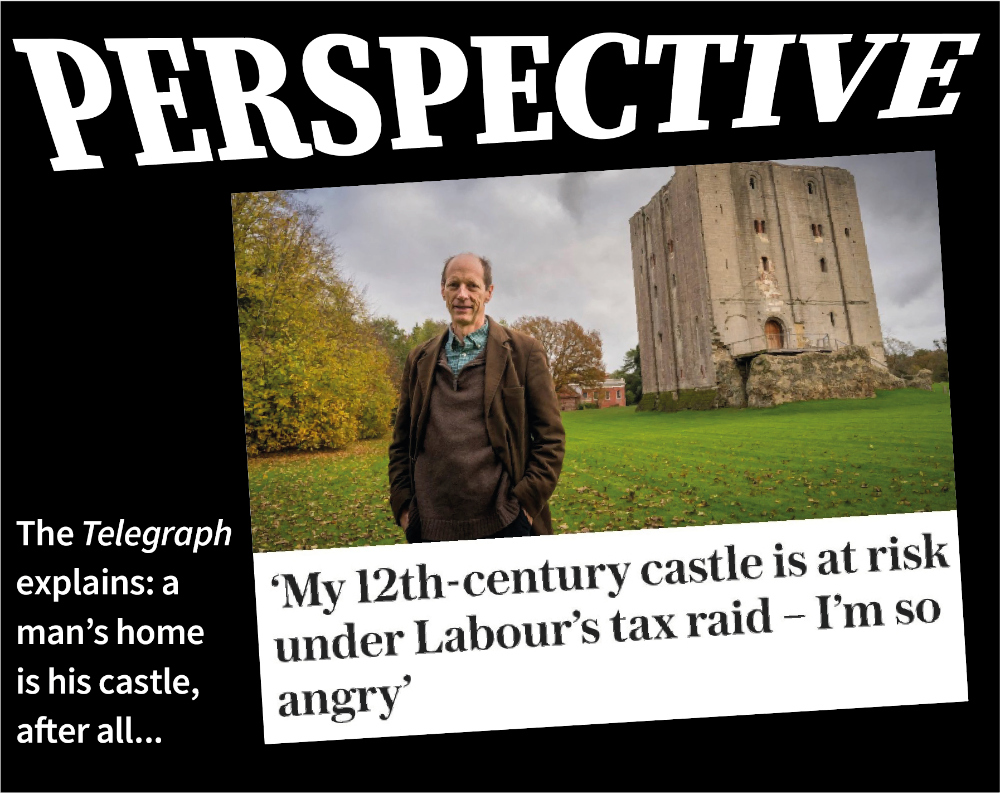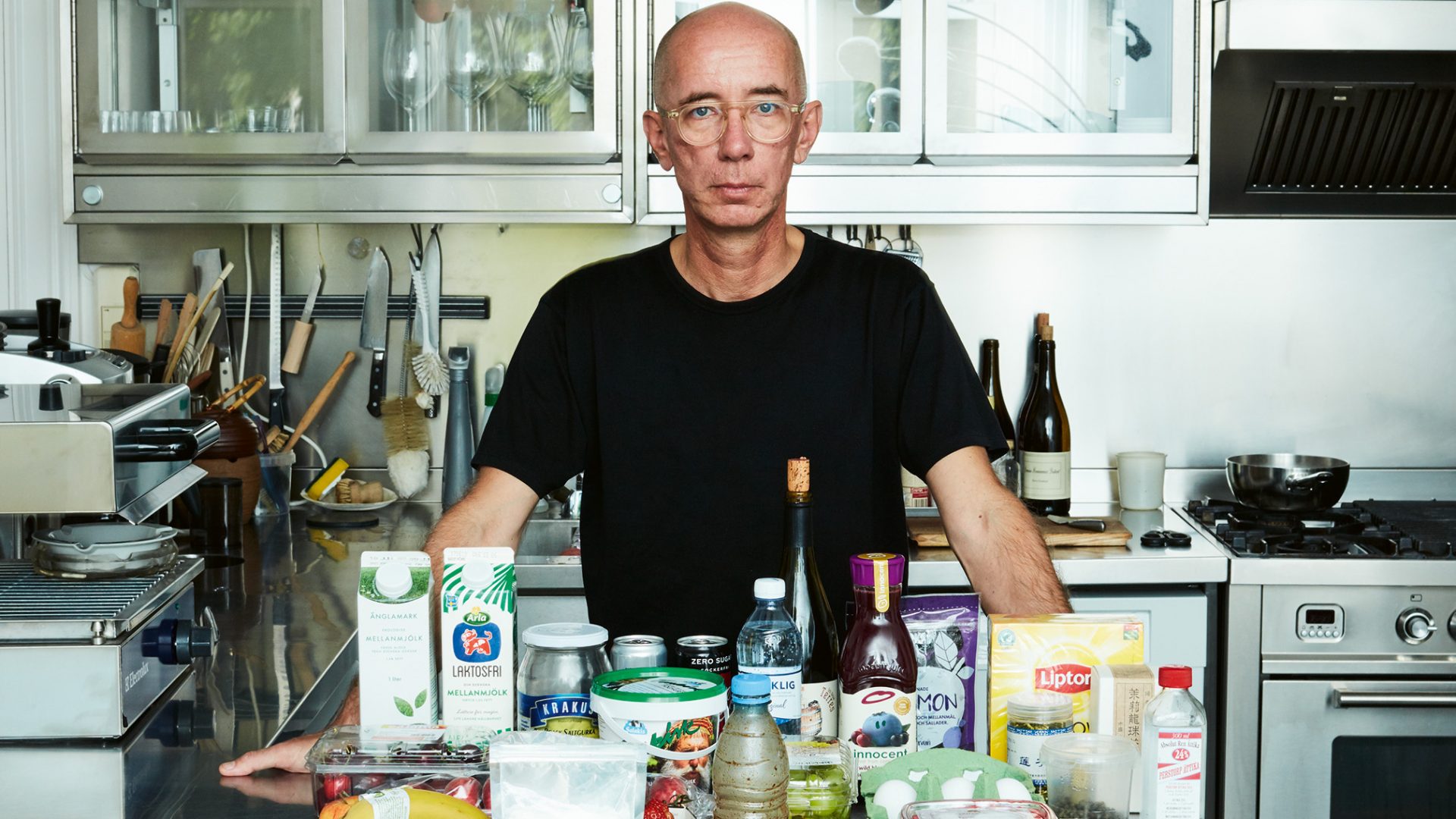I read “Britain’s baby doomers” by Jonty Bloom (TNE #413) hoping for better than an attempt to sow intergenerational intolerance, but was disappointed.
As a “boomer” – I hate that contemptuous phrase – I have had exactly the same amount of control over when I was born and the politics of the time as you do now. Arguably less, given how women were treated at the time.
If you want to understand why women are having fewer children, you could start by asking us. The answers include the unwillingness of men to participate on an equal basis.
You can address this by fixing inequalities or by rolling back the rights of women. It’s not surprising that the latter is a key feature of right wing ideology.
Gillian Grafton
Jonty Bloom is wrong to argue that the boomers should pay up and/or shut up because they enjoyed free university education.
In the 1960s, only 4% of school leavers went to university. By the end of the 1970s, that was 14%. But in 2023, 38% went to university.
The great majority of boomers had no university education, or A-levels for that matter.
Healthcare at the start of the boomer generation was massively less capable than today. Boomers were mostly born into slums or council houses, which is why they loved the ownership boom. Most of them do not have final-salary pension schemes and if they do, these do not pay out very much.
Jonty Bloom is not alone among the liberal commentariat whose view of their generation is just a false extrapolation of their own mostly middle-class social circle.
Austin Thornton
I’m a boomer. I’m sick to death of always being blamed for the economy, or who I voted for (never voted Tory in my life), or being held responsible for NHS shortfalls because I need medical care. I hate Brexit and never voted to leave the EU. I passionately do not oppose immigration.
How dare you characterise me within this demographic because of my birth year?
Your article is not factual as one shoe does not fit all.
Andy Little

Let’s put the UK first
Paul Mason sees Joe Biden’s decision to allow Ukraine to fire long-range missiles into Russia as a “wake-up call to Europe” (TNE #413). He seems to subscribe to the belief that Russia has embarked on the first step in a campaign to overrun the whole of the continent.
I’m a baby boomer who lived through the terrifying cold war era and who believed the Nato myth of the Missile Gap, of the Bear from the east poised to conquer us all. I well remember the scary maps illustrated with dramatic red arrows pointing westward towards a diminutive, cowering, disarmed continent. Today we hear the same fears, arguments that the 1930s are here again with an underfunded, neglected military and with appeasement active on all fronts.
Putin is a war criminal and a dictator, but for all his warmongering he’s signally failing in his war aims after two years of increasingly desperate blood-letting. With US, British and French nuclear submarines, our two behemoth aircraft carriers, nuclear bombs and missiles stored in Germany and no doubt elsewhere, Russia is fully contained, surrounded and outgunned.
The UK comes second after the US in funding Nato, and unfortunately it seems we should continue to do so, but I would argue that we have done our share of policing the world. Instead of sending weapons, food and warm winter clothing from the UK to Ukrainian lads in the trenches, let us first feed our homeless and malnourished here, give them warm clothes and homes, especially the hundreds of thousands of children living lives of multiple deprivation in modern slums.
There is of course no guarantee that the millions saved by not supporting Ukraine would go to alleviating destitution, but it might be a beginning.
Philip Mackenzie
Edinburgh, Scotland
No easy way back
Re: Vicky Pryce’s “Stuck in the middle” (TNE #413). There is no easy way to rejoin the single market or the customs union, beneficial though this would be. Would the EU even countenance it, for starters? Particularly when the Tories and Reform UK would immediately make a cast-iron pledge to pull us out again, the moment they were able to do so.
Any referendum on this issue (please no!) would be fought on the issue of uncontrolled immigration, and after six months of lies and wall-to-wall hysteria, this would probably be lost, ending any prospect of a closer relationship for decades.
The only possible narrow path that might just work is sustained pitch rolling and education over the next four years, with rejoining the SM and CU being a manifesto commitment to avoid a referendum. Even then, it would be touch and go. Whatever the advantages (and there are many), the catastrophic and yet monumental decision to leave is still only a few years old.
John Hyder-Wilson
Fight or flight?
Nigel Warburton’s musings on knowledge, belief and evidence (Everyday Philosophy, TNE #413) are not, as some may have thought at first glance, purely academic with no practical implications. Get something wrong based on belief alone, whether or not through any fault of your own, and it could kill you, as I know from being a pilot. On one occasion, another pilot smelled burning and observed smoke in the cockpit. Forming the belief from this evidence that they had an engine fire they shut down the engine, failed to find a safe forced landing site, and died in the crash. In fact, the accident investigators found, it had been an electrical fire – if the pilot had turned off the electrics instead of the engine they would have survived.
So one day when I smelled burning just after take-off, but with no runway left ahead to land immediately back down on, I remembered this accident report (pilots read them obsessively), and instead of forming an instant belief based on the evidence of fire I did… nothing. Nothing at all, other than think. For what felt like a long, long time – seconds and seconds, while continuing to smell burning.
Then perhaps some knowledge came into the equation. What I knew was that it was the first chilly day that autumn. So I guessed that I might be the first person to turn on the cabin heater that year, so what I could smell might just be the dust in the heater system burning off, like you sometimes get in cars. Turned the heater off, the smell went away, drama over.
Pilot training has names for all these things, though not quite the same terminology as the philosophers.
Tim Ward
Lording it over us
Patience Wheatcroft complains rightly in TNE #413 that religious leaders should not sit in our legislature, but this an accident of our heritage. But there is also a more recent appalling anomaly, namely that Lords in the second chamber have been able to vote on taxation rules while being permitted to be non-doms and thus avoid paying the same taxation that is imposed on all other people.
Can I suggest that all non-doms and their partners have to be excluded from being members of our parliament? I appreciate that this would affect the owners of the Daily Telegraph and Daily Mail, but I’m sure even they could realise the common sense of it. One shouldn’t have people being allowed to vote on something that only applies to the rest of the population.
AH Clark
Heswall, Merseyside
Don’t feed the trolls
I’m not surprised that Rory Stewart got piled on by Twitter trolls for expressing a positive view of the archbishop of Canterbury (Alastair Campbell’s Diary, TNE #413). Unfortunately, since Elon Musk took over Twitter it has become the home of all the worst trolls, conspiracists, misinformation spreaders, hate-speech spreaders and those whose political views are best described as fascist.
Having been trolled myself for daring to correct and challenge an outright untruth put out by one of Reform’s MPs, I now prefer to adopt the “don’t feed the trolls” approach, but as a non-public figure I can afford to do so. Perhaps time to move to a different social platform?
Patrick G Cox
Taunusstein, Germany
Language barriers
Multi-culti Alastair Campbell suggests getting more Brits to learn German (Diary, TNE #412). It might help if we offered European languages at local schools without “marking” students’ work. Without any pressure, students might like to go for it and enjoy the experience of a foreign language.
With both my husband and I being multilingual, we spoke German at home on purpose. That’s why without much ado our sons grew up speaking fluent English and German.
Both our sons do the same with their children – they are all bilingual from birth and learn French at school as well. Speaking other languages helps you to make friends wherever you go in the world.
Gisela Greenaway
East Grinstead, West Sussex
Churchill’s Euro-vision
Re: Debates in TNE #413 and #412 over whether the UK should side with the EU or Trump’s USA in the years ahead. Perhaps we need to go back to the past for inspiration.
Winston Churchill, after the second world war, recognised the need to reverse centuries of the European history of nationalism and warmongering. His position can be summed up in his speech to the academic youth held at the University of Zürich in 1946:
“There is a remedy which… would in a few years make all Europe… free and… happy. It is to recreate the European family, or as much of it as we can, and to provide it with a structure under which it can dwell in peace, in safety and in freedom. We must build a kind of United States of Europe.”
His vision at that time was a founding contribution for the creation of the Council of Europe and subsequently the European Court of Human Rights. Had he been 10 years younger I believe he would have led this nation into the Treaty of Rome and ensured that we would have taken a progressive role in developing the European Union as a dynamic economic and defensive power in the world.
Despite the hijacking of Churchill’s name by the xenophobic Brexit promoters, Churchill was an internationalist and never a nationalist. He was acutely aware of the need for strong European unity as a buffer against the other world power blocs.
Also, being of half American parentage he fully understood the special relationship with the USA and, crucially, its limitations.
So the message to Sir Keir Starmer’s new government should be: please do not repeat the embarrassing episode of Theresa May going cap in hand to Trump, and put all your efforts into European solidarity in Nato.
Frank Palmer

BELOW THE LINE
Comments, conversation and correspondence from our online subscribers
Re: “How Berlin got under my skin” by John Kampfner (TNE #413). I don’t live in Berlin but as a Brit who has lived in Germany for 10 years it always makes me sad that so few Brits have ever visited Germany. The attitude to work-life balance is much better here and people have been welcoming.
I can’t agree about the trains because the ones I use are much better than the ones I often use in the UK but that might be because my family are spread out to Wales and the Midlands. I love visiting Berlin and together with other parts of Germany it definitely will always have a place in my heart.
Juliet Guthrie
Re: “Is Germany’s economy kaput” by James Ball (TNE #413) There is no doubt that the German economy currently faces challenging times. But this has fairly often occurred since the country emerged (or re-emerged) as a political entity. More recently, the Russian energy sources, which had accounted for significant German capital investment, have had to be written off. However, no one can deny that the shift of the industrial base to China, and the far east more generally, poses an economic problem.
Eric Owen Smith
“Disinfo wars” by James Ball (TNE #413) was a great article. Naomi Klein’s Doppelganger gives an extended analysis of the vast network of online conspiracy theories that now (post Musk/X) seems to be extending across the Atlantic at an ever-accelerating pace.
Denise Brown
I was so pleased to see Charlie Connelly’s Great Life of Lya de Putti (TNE #413). I researched her story while living in Berlin in the ’00s and dramatised her story in my novel, Winter Under Water (Picador, 2007).
In Budapest she was friends with poet Endre Ady who encouraged her to pursue her dreams. She soon became one of the leading actresses of the silent screen (Liza Minnelli/Sally Bowles namechecks de Putti in Cabaret), equally notorious for her nights out on the town, sometimes with Anita Berber. A tragic story developed, yes, and de Putti’s now largely overlooked by cinema history, but her short life was also full of mischief, intrigue and joy.
JA Hopkin
JOIN THE CONVERSATION
Subscribe and download our free new app to comment and chat with our writers



